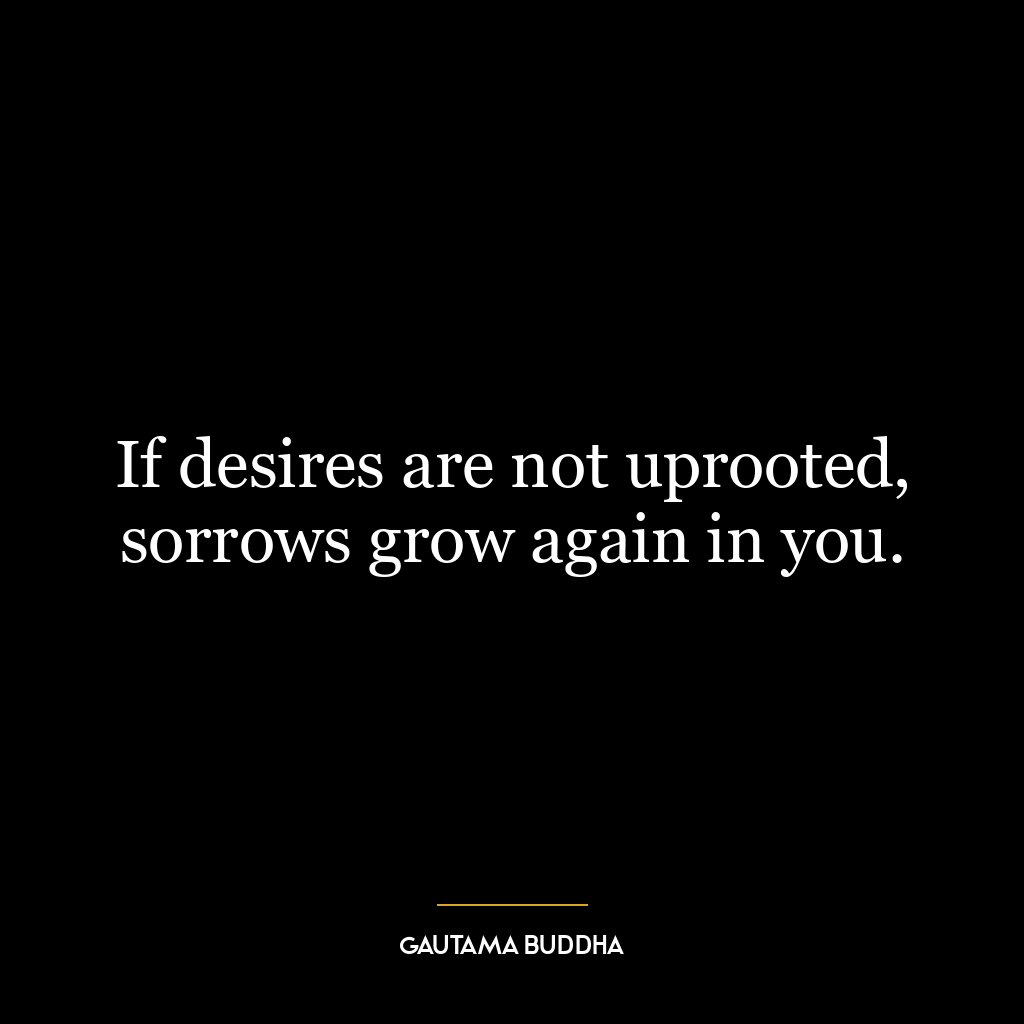If desires are not uprooted, sorrows grow again in you.
This quote suggests that the root cause of sorrow is desire. If we continually desire something, it can lead to disappointment, frustration, and ultimately sorrow, when we don’t get what we want. The term “uprooted” implies that the removal of desire must be thorough and complete, otherwise, like a weed not entirely removed, it can grow back and continue to cause distress.
This concept is deeply rooted in the Buddhist philosophy of the Four Noble Truths, where desire or attachment is identified as the cause of all suffering. The idea is not to eliminate all wants or needs, but to understand and manage them in a way that they do not control our lives or our state of happiness.
In the context of today’s world, this could be related to materialistic desires, social status, or even the desire for perfectionism. The constant chase for more – more money, more success, more likes on social media – can lead to a state of perpetual dissatisfaction and sorrow. The more we want, the less content we are with what we have.
In terms of personal development, this quote could be a reminder to focus on being present and finding contentment in what we have. This doesn’t mean we should not have goals or aspirations, but rather that we should not allow these desires to dictate our happiness or self-worth. It suggests the importance of detaching our happiness from external factors and finding it within ourselves instead. This could involve practices like mindfulness, gratitude, and self-reflection, helping us to ‘uproot’ unhelpful desires and reduce the potential for sorrow in our lives.















